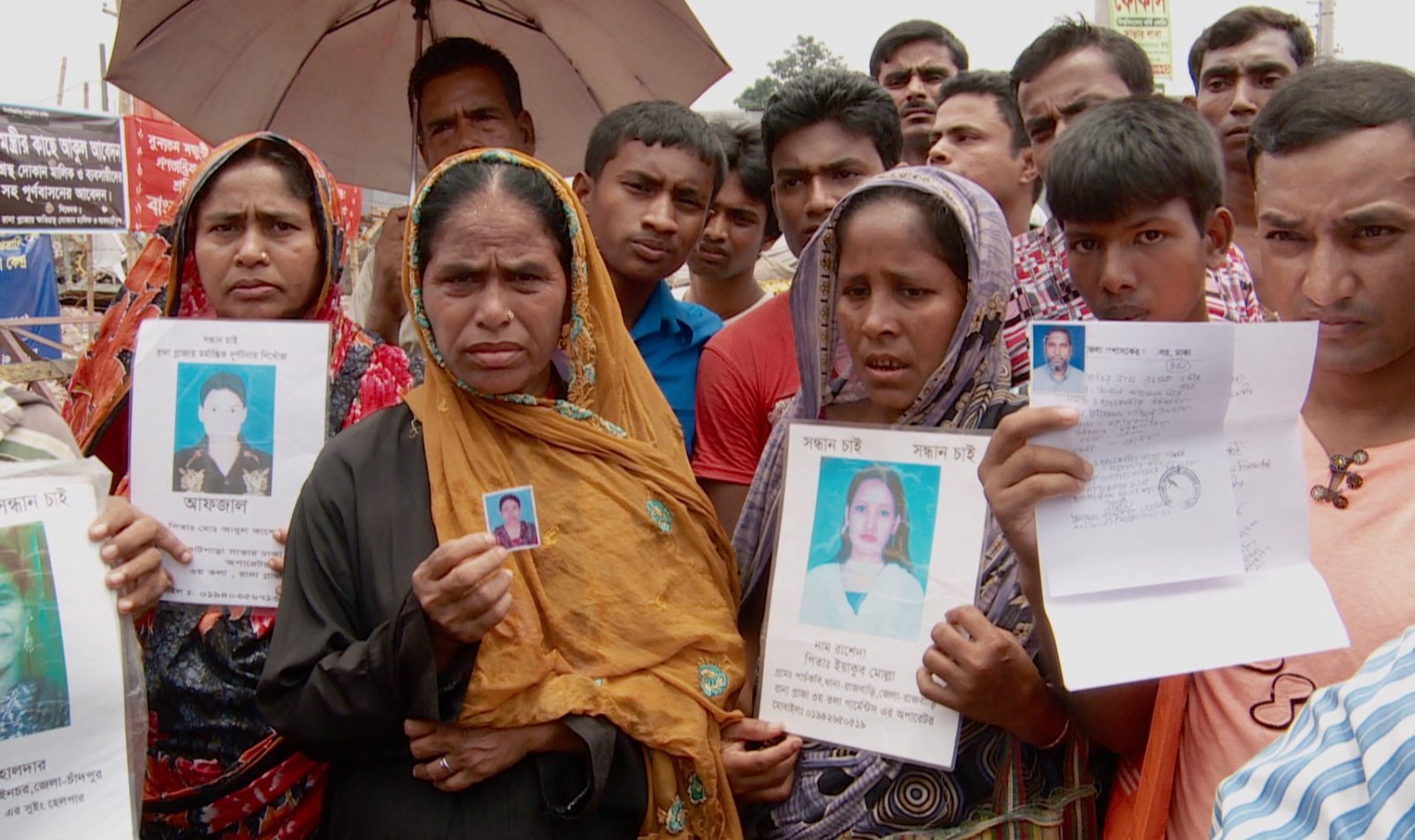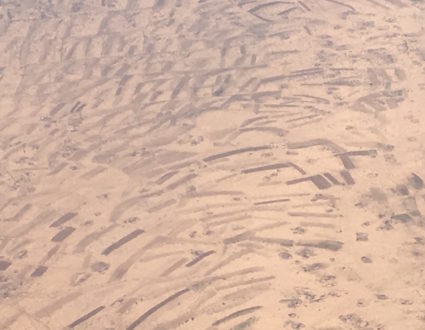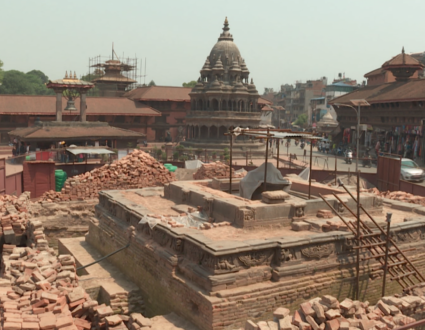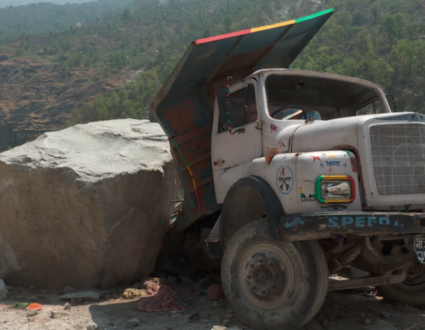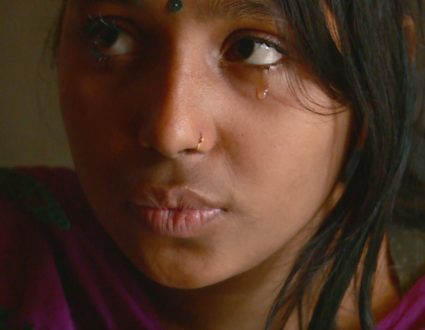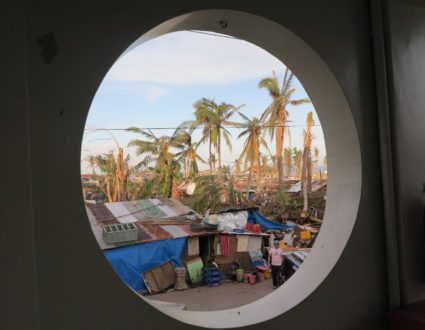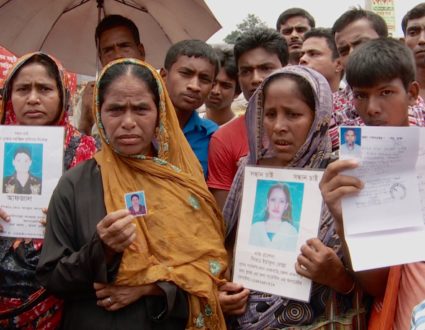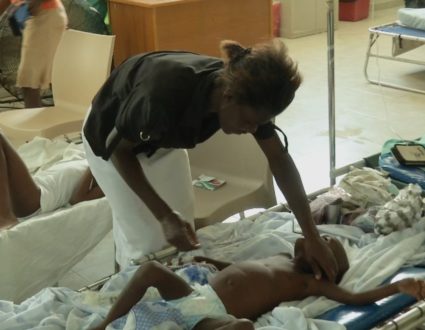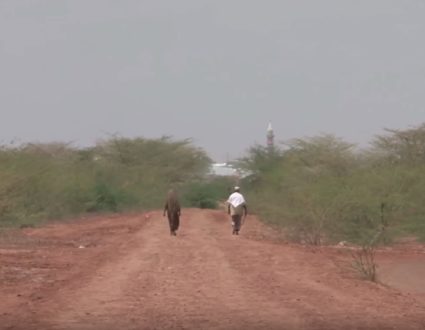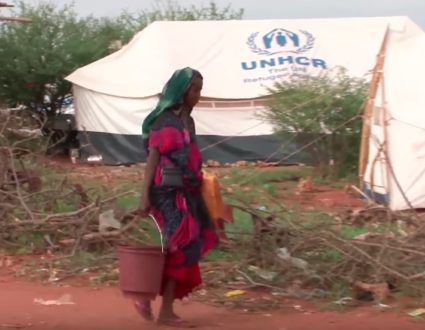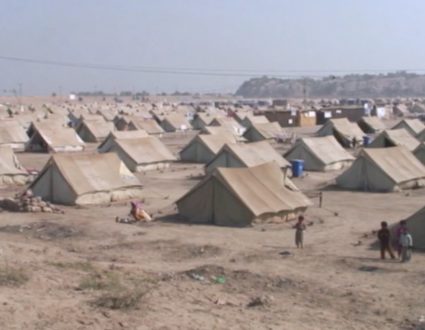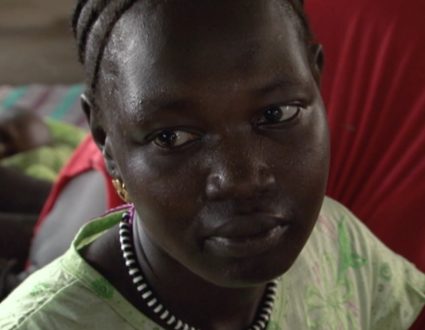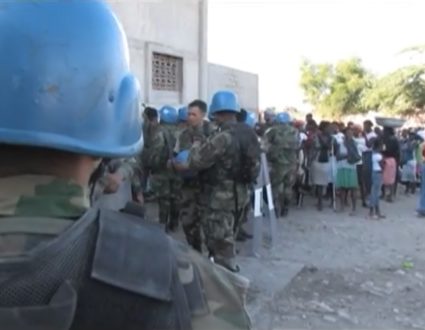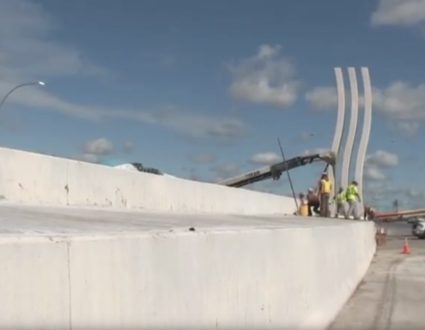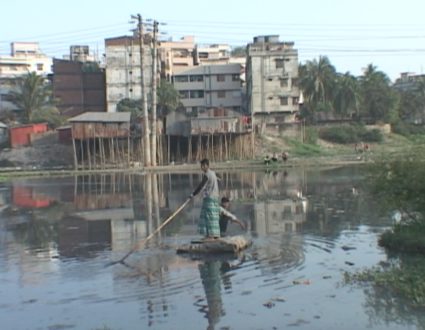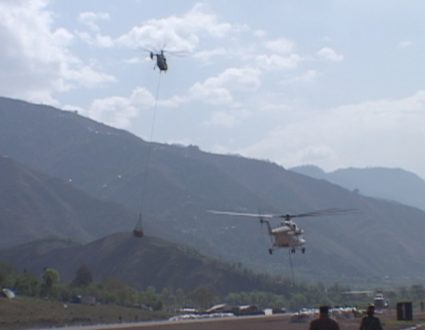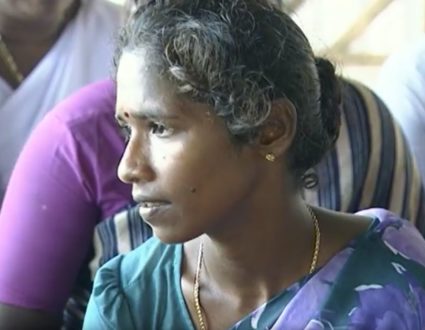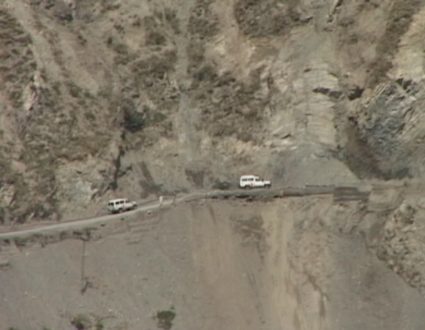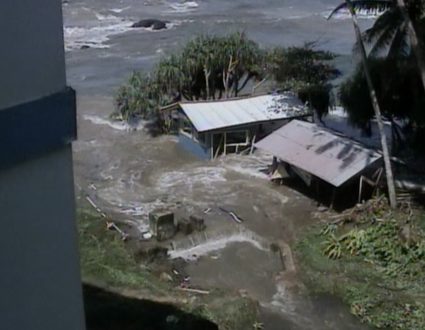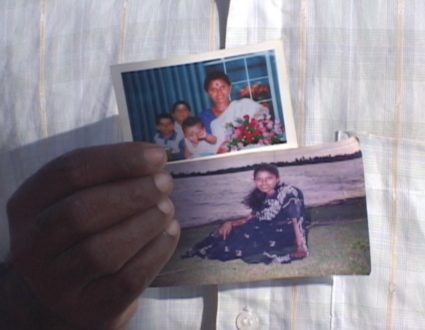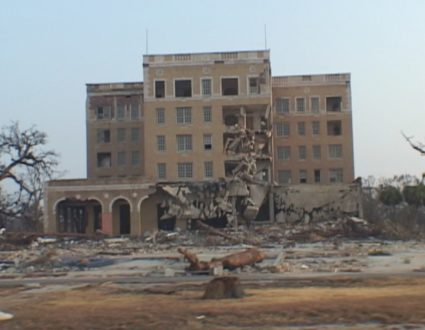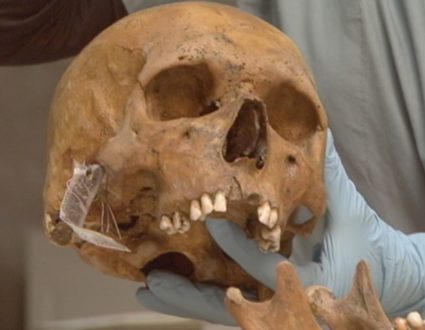GWEN IFILL: Next: an update on moves to improve conditions for workers in Bangladesh, after the tragedy at a clothing factory earlier this year. A development organization dedicated to tackling poverty is offering a hand.
Special correspondent Fred de Sam Lazaro has the story, another in our series “Agents for Change.”
FRED DE SAM LAZARO: This is what’s left of Rana Plaza, the seven-story building that collapsed in April, a memorial, already weathered by heat and monsoons, to the deadliest of Bangladesh’s recent garment factory disasters, the death toll here, 1,127 and counting.
Many victims of the Rana Plaza tragedy may never be accounted for. More than 200 bodies, some decomposed beyond recognition, had to be buried before they could be identified.
BILQUIS, Bangladesh: I’m tired, I have no energy to look for her any more. I don’t know where to go.
FRED DE SAM LAZARO: An anguished crowd bearing images of loved ones quickly gathered around us, grandmothers like Bilquis, whose daughter Shahinoor is among those missing. Many here gave DNA samples in hopes a match could be found with someone buried. So far, they said, no word and no compensation.
BILQUIS: I had two sons and a daughter-in-law working on the second floor. We got the bodies of my older son and daughter-in-law, but they haven’t found my younger son.
FRED DE SAM LAZARO: One organization that has since promised to help them is BRAC, originally the Bangladesh Rural Advancement Committee. It is the world’s largest nongovernment organization. BRAC is providing artificial limbs and rehabilitation to scores of survivors.
JOSNA AKTER, Bangladesh: I don’t know about my future. I have no strength and it is difficult for me to move.
FRED DE SAM LAZARO: Josna Akter was rescued after two days under the rubble. She may not feel like it, but doctors say she’s lucky. Her back injury, though severe, should heal in a few months.
BRAC arranged for her family to receive some $600 dollars, equivalent to several months’ pay, and will keep tabs on Josna and all victims and families.
FAZLE HASAN ABED, Founder, BRAC: We have collected all the statistics of what happened to whom, what kind of compensation they collect and whether or not BRAC can help.
FRED DE SAM LAZARO: BRAC has been a familiar presence in disaster relief since Fazle Abed founded it in the early 1970s, in the wake of two epic ones: a cyclone that killed 300,000 and Bangladesh’s bloody war of independence, whose death toll was many times that number.
Abed at the time was an up-and-coming London-based executive for Shell Oil.
FAZLE HASAN ABED: I saw dead bodies all over the place, and that sort of gave me the feeling that my — the work I do has kind of — has no meaning. So I set up BRAC, initially very small, because I didn’t have much resources. I had sold my house in London, brought the £15,000 pounds and started work.
FRED DE SAM LAZARO: He started small, but never lost the large-scale thinking of his big oil background.
Today, BRAC’s programs help about 80 percent of this country’s 160 million people. It runs 38,000 schools, a major university and is everything from a large bank to the largest producer of seeds in Bangladesh.
FAZLE HASAN ABED: So every business that we have gone into has something to do with poor people’s needs.
FRED DE SAM LAZARO: One business BRAC is not in is garment making. But Abed says it too is a vital avenue out of poverty, especially for rural women.
FAZLE HASAN ABED: It’s created about four million jobs, almost 3.5 — more three million jobs for women. So it is very critical.
FRED DE SAM LAZARO: He says BRAC will be monitoring improvements that have been promised since the Rana Plaza disaster.
FAZLE HASAN ABED: And we are looking at opportunities as to what will be the more effective role that we could play. There is certainly more awareness everywhere that we need to do something very quickly. Otherwise, Bangladesh might lose a lot of business.
FRED DE SAM LAZARO: In fact, in June, the U.S. government, citing safety and labor rights concerns, suspended trade preferences for certain Bangladeshi exports, which will raise their price. The move doesn’t directly impact garments, but there’s fear that it could drive away investors.
For its part, the government says it will make land available for new safer factories and says it will train 400 new inspectors. It has just 18 overseeing 5,000 factories, many in rapidly built structures like Rana Plaza.
Commerce Minister Ghulam Quader says the industry grew much faster than the capacity to regulate it. And he admits, the government wanted to protect an important source of export earnings.
GHULAM MOHAMMED QUADER, Bangladesh Commerce Minister: Government thought that this is a sector which needs to have some sort of protection, especially …
FRED DE SAM LAZARO: … with the manufacturers.
GHULAM MOHAMMED QUADER: And the manufacturers in a way that yes — so that’s why we try to restrict labor union activities.
FRED DE SAM LAZARO: He says unions, kept down in the past will now be allowed a greater voice, a move Abed has urged.
FAZLE HASAN ABED: Only a couple of months ago, if you asked a garment industry owner what do you think of a union, they will say no, no, no, no unions. But now they’re — many of them are saying that yes, maybe.
FRED DE SAM LAZARO: David Hasanat runs a rare company that would allow our cameras in. He’s leery of unions, at least in his plants, saying he offers higher-than-average wages, on-site day care, pensions and good fire control systems.
In any event, he says, Western buyers really hold the cards and they continue to squeeze local producers. After previous disasters, like a string of fatal factory fires, he says there was talk, but no action.
DAVID HASANAT, Viyellatex Group: Couple of months, lot of media, international media. And, believe me, few months later, the customer, they act the same way, the price, price, price.
FRED DE SAM LAZARO: What is your share of this pound price tag?
DAVID HASANAT: Roughly, something like two pounds.
FRED DE SAM LAZARO: He says there’s unrelenting pressure from buyers to cut costs. So many producers cut corners. Perhaps a third of Dhaka’s factories are substandard, he says, and Western clients could change this if they insisted on better conditions.
DAVID HASANAT: If there is demand, everybody would set up the right kind of factory because business is not going to reduce. The prices we’re offering, we’re getting from Bangladesh, you cannot get from other parts of the world. You have to come to Bangladesh.
FRED DE SAM LAZARO: Major brand buyers say they have stepped up their own plant inspections, though none would allow us to go along on a visit.
NAZMA AKTER, Bangladesh: You people also have responsibility. It’s a global business. It’s a global supply chain.
FRED DE SAM LAZARO: Former garment worker and union organizer Nazma Akter says workers have a message for everyone else up that global supply chain.
NAZMA AKTER: Everybody is cheating the workers.
FRED DE SAM LAZARO: Everybody is cheating the workers?
NAZMA AKTER: Yes.
FRED DE SAM LAZARO: The consumers are not paying enough for their clothes? The brands …
NAZMA AKTER: Are not paying enough …
FRED DE SAM LAZARO: … are not paying a fair price to the manufacturers?
NAZMA AKTER: Even the manufacturer is not paying proper. Even our government, the law enforcement also is not properly implementing, these are the problems.
FRED DE SAM LAZARO: She says better wages and conditions will be critical to sustain an industry that remains the best opportunity for millions of poor women. BRAC founder Abed agrees, even as he works to expand their options with programs like driver training.
NASREEN SULTANA, Student Driver: Driving is challenging, but it is a good job. And I thought, if boys can do it, so can I.
FRED DE SAM LAZARO: Nasreen Sultana and Mahfuz Begum are training to become chauffeurs.
MAHFUZ BEGUM, Student Driver: I may start lower, but I know that when I get a license and have some experience, I will be able to earn much more than garment workers. If I didn’t have this chance, maybe I would have to be a garment worker.
FRED DE SAM LAZARO: In this crowded capital, it’s not for the faint of heart and, in this traditional society, not usually for women. But it does promise perhaps two to three times the $37 dollars-a-month minimum that’s earned by garment workers.
GWEN IFILL: Fred’s reporting is a partnership with the Under-Told Stories Project at Saint Mary’s University in Minnesota.
A version of his story will air this weekend on the PBS program “Religion & Ethics Newsweekly.”
Promises After Disaster
In April, a Bangladesh factory collapsed, causing the death of at least 1,127 workers due to unsafe conditions. Special correspondent Fred de Sam Lazaro reports on efforts by one organization to help survivors and victims’ families recover from the disaster, and to monitor promises made by the garment industry to improve.
Related Links:BRAC
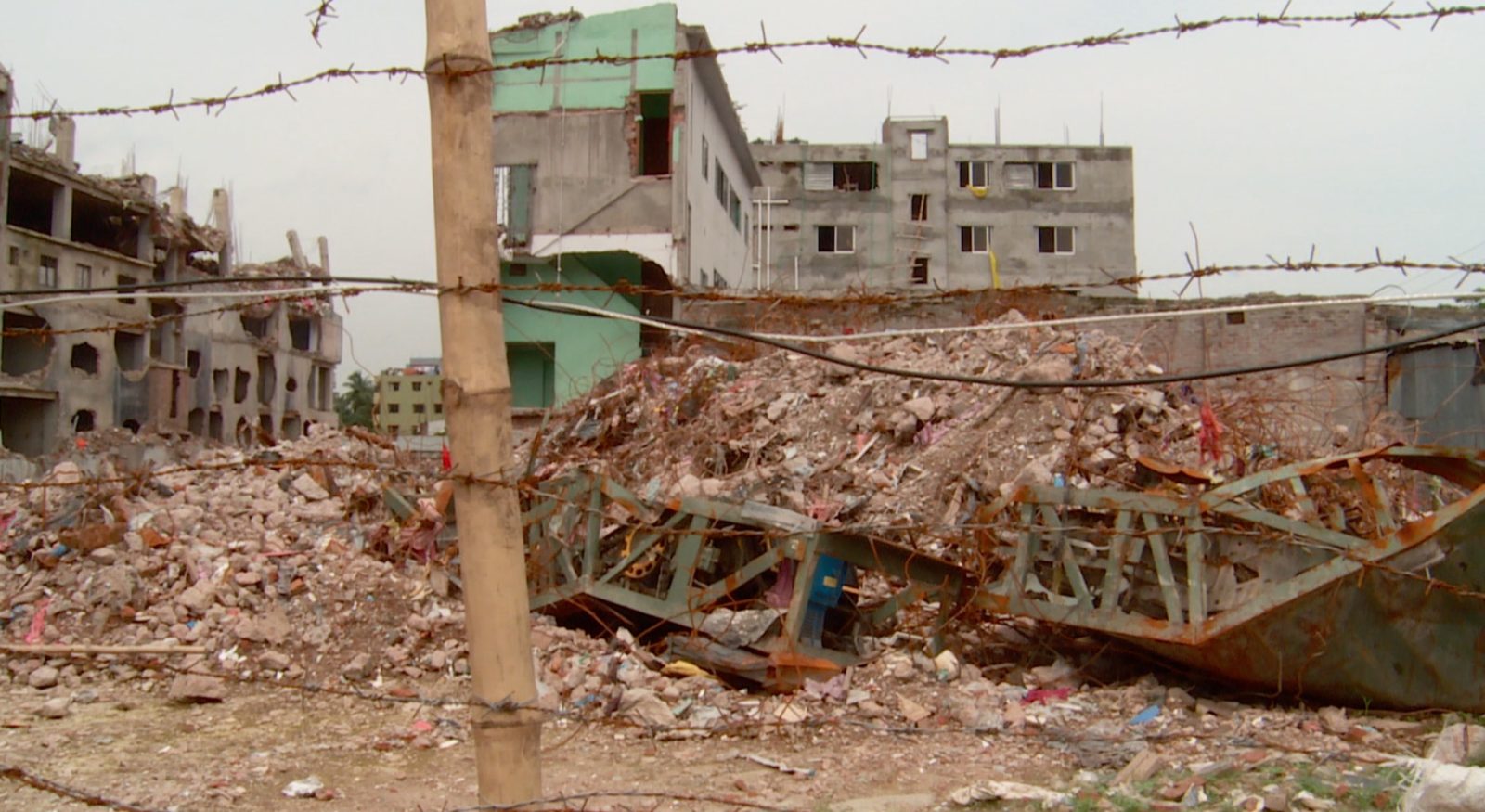
Rana Plaza
This is what’s left of Rana Plaza, the seven-story building that collapsed in April – the deadliest of Bangladesh’s recent garment factory disasters
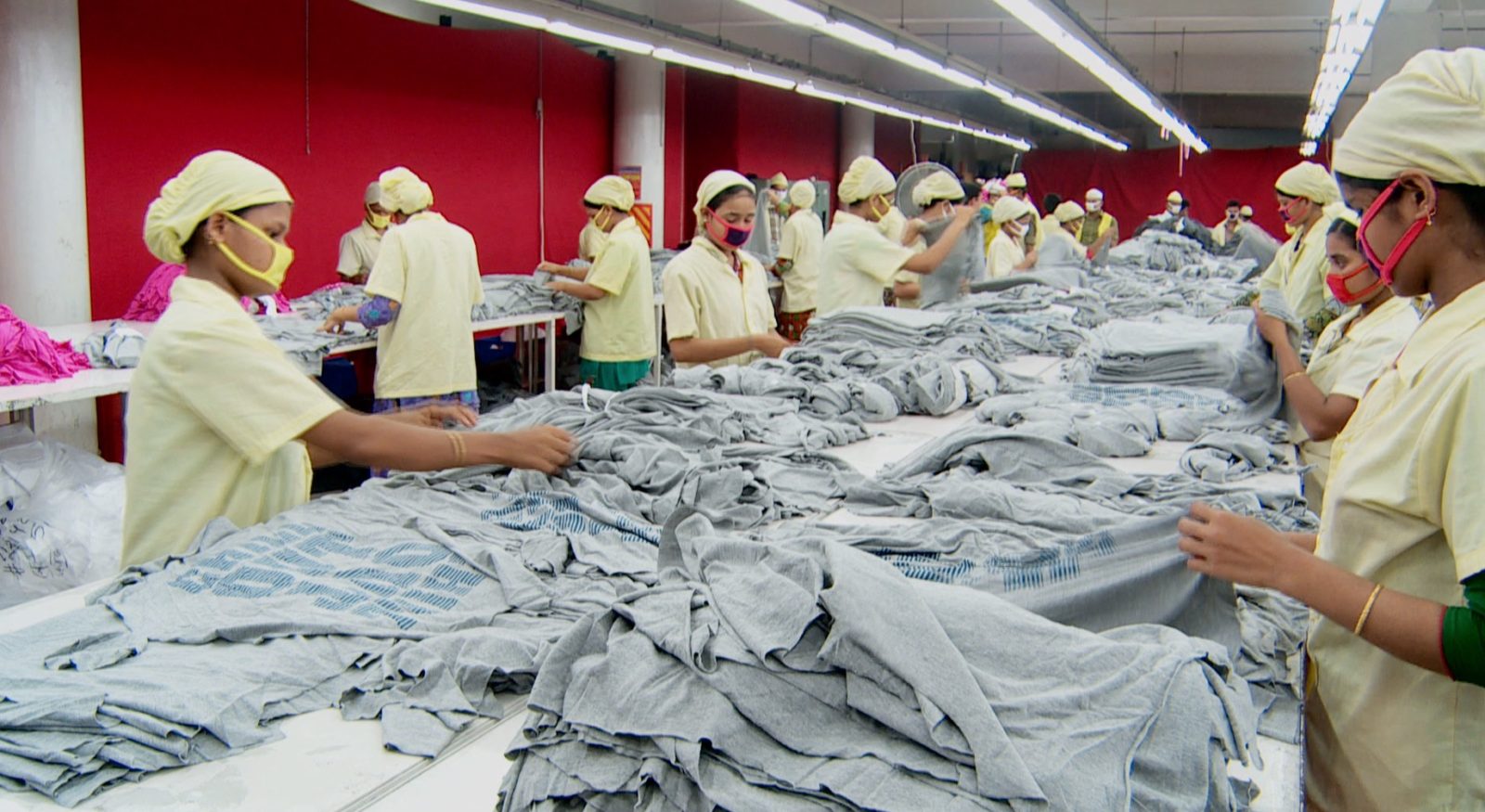
Monitoring Improvements
For its part, the government says it will make land available for new safer factories and says it will train 400 new inspectors – all monitored by BRAC. It currently has just 18 inspectors overseeing 5,000 factories, many in rapidly built structures like Rana Plaza.
